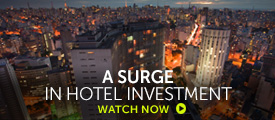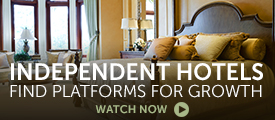2015 has been a great year for hotel investment so far. There has been renewed positivity in the market and a rise in portfolio transactions. According to JLL, the UK has led transactions in the EMEA, with deals up 172% in the first half of 2015 compared to 2014. Overall in the EMEA region half year transaction volumes are up 85%. The US has also seen a rise in investment with transaction volume nearly doubling in the first half of 2015.
In this briefing industry insiders discuss the state of hotel investment, and who is investing in what:
JLL have reported that significant amounts of investments into the EMEA region has come from China and North America. Chinese investment has amounted to $1.9 billion so far this year. Investment from North American private equity funds, which has reached $1.1 billion, has accounted for 57% of regional UK portfolio deals.
International investment into America amounted to $6.6 billion in the first half of 2015 representing nearly 30% of deal volume and showing a marked increase on 2014.
Some portfolio moves this year have included Accor’s restructuring of HotelInvest’s assets, which has involved the sale of 29 hotels in Germany and the Netherlands under a €234 million sales & Franchise back agreement in April, and the sale of seven hotels in the UK and Ireland for €38 million in May.
In June, Ashford Trust announced its intention to sell a 23 select-service hotel portfolio. And last month Pinnacle Hotel Management (PHM) sold a 15-hotel, select-service portfolio comprised of Marriott- and Hilton-branded hotels for $203 million to the Blackstone Group.
If you’ve been sent to this page and you’re not yet on the circulation list to receive these regular briefings and you would like to sign up, you can do so here. It’s free.
Video clips produced by yBC for the Hospitality Channel, including interview from industry conferences such as the IHIF conference as well as specific Hospitality Channel shoots.









